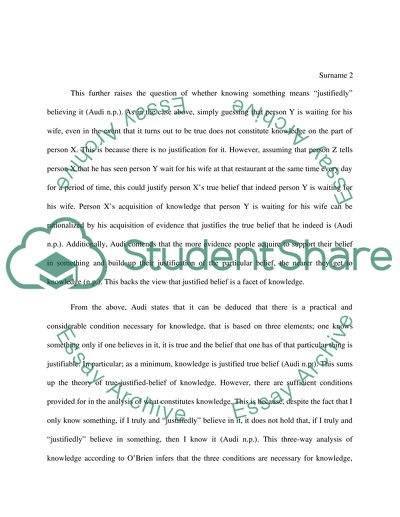Explain the true-justified-belief theory of knowledge Essay. Retrieved from https://studentshare.org/philosophy/1488696-explain-the-true-justified-belief-theory-of
Explain the True-Justified-Belief Theory of Knowledge Essay. https://studentshare.org/philosophy/1488696-explain-the-true-justified-belief-theory-of.


